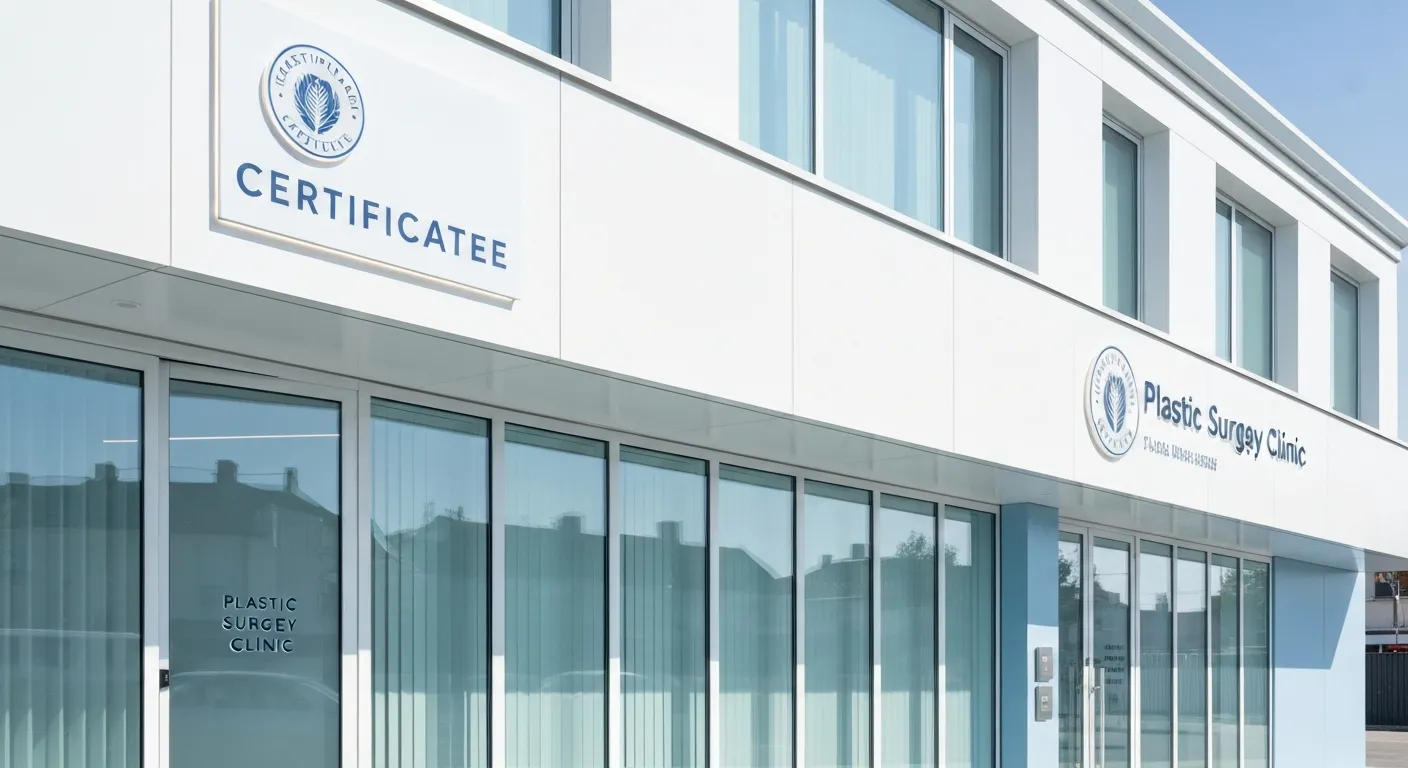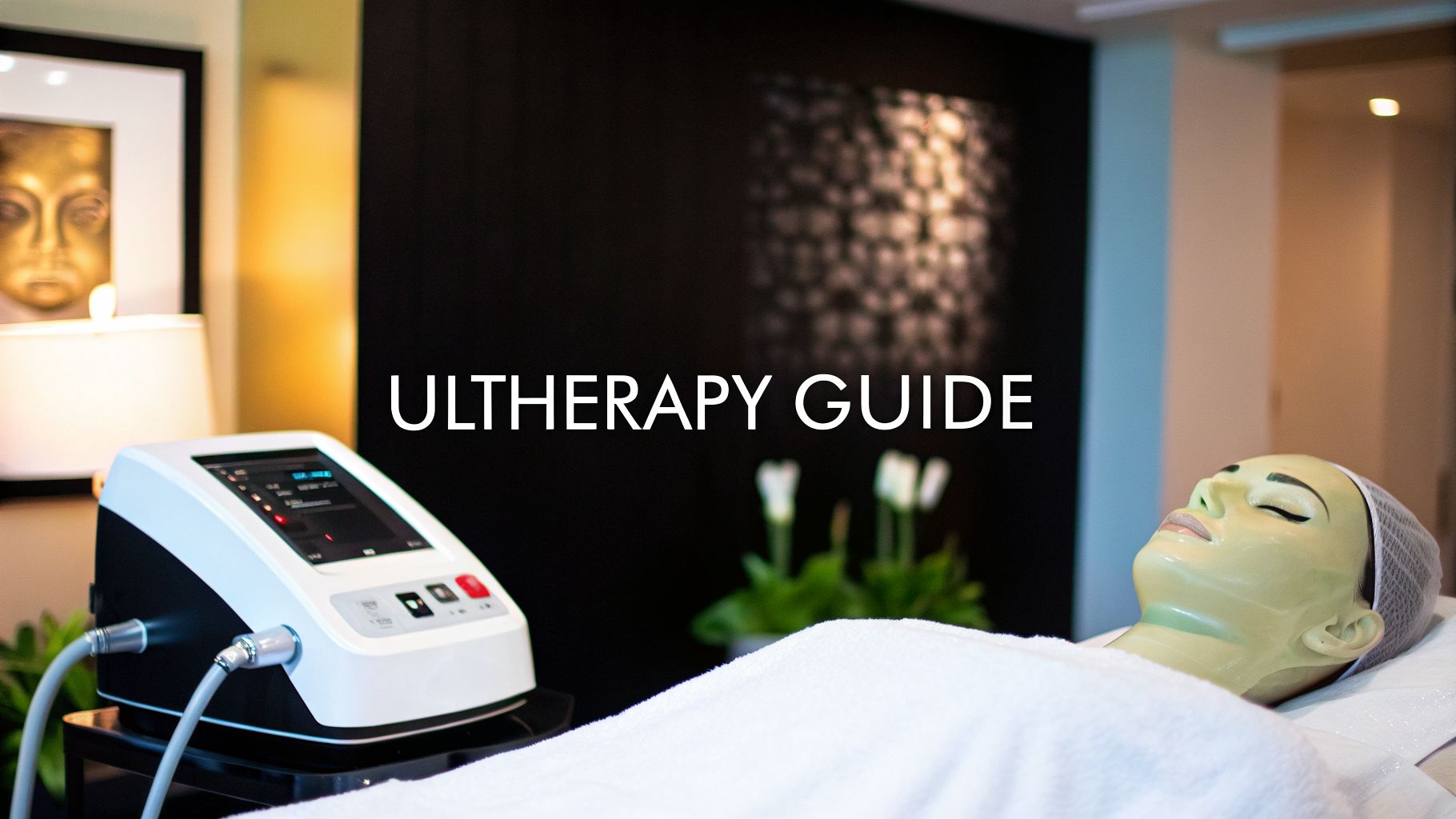
February 21, 2026
How to Prevent Keloid Scars After Surgery A Definitive Guide
Discover how to prevent keloid scars after surgery with our definitive guide. Learn expert strategies for risk assessment, surgery, and post-op scar care.
Nov 21, 2025

Board certification in plastic surgery is a voluntary but highly significant achievement that indicates a surgeon has completed specialized training, passed rigorous exams, and demonstrated competence in both reconstructive and cosmetic procedures.
The ABPS is the only board recognized by the American Board of Medical Specialties (ABMS) for certifying plastic surgeons in the United States. This certification ensures a surgeon meets high standards for education, ethical practice, and patient safety.
To attain ABPS certification, surgeons must graduate from an accredited medical school, complete at least six years of residency training—including focused plastic surgery training—and pass comprehensive written and oral examinations. Maintaining certification requires ongoing education and periodic re-evaluation.
Unlike cosmetic surgeons who may have varying training backgrounds, board-certified plastic surgeons have undergone extensive education and training specifically in plastic and reconstructive surgery. This ensures a higher level of expertise, safety, and quality in surgical outcomes.

Board certification signifies that a plastic surgeon has completed an extensive and specialized education pathway, ensuring a high level of expertise and clinical competence. Typically, these surgeons attend medical school followed by a rigorous surgical residency lasting at least six years, with a minimum of three years strictly dedicated to plastic and reconstructive surgery.
This training involves mastering both reconstructive and cosmetic procedures, covering areas such as facial, breast, and body surgery. The comprehensive surgical residency builds a foundation of knowledge in anatomy, surgical techniques, patient safety, and aesthetic principles necessary for effective and safe interventions. See more about specialized training in plastic surgery and benefits of board-certified facial cosmetic surgeons.
Beyond residency, many surgeons pursue fellowship programs to gain advanced skills in subspecialties like aesthetic surgery or microsurgery. These fellowships can last up to a year and focus on honing artistic judgment and technique refinement, further elevating surgical outcomes, as explained in training and education for plastic surgeons and benefits of board-certified facial cosmetic surgeons.
Board certification is not a one-time achievement. Surgeons must pass challenging written and oral examinations and commit to ongoing continuing medical education (CME). They undergo periodic re-examination every few years and must maintain hospital privileges, ensuring they stay current with evolving techniques and uphold patient safety standards. Learn more about the board certification process and ongoing education.
Unlike some cosmetic surgeons or practitioners who may have shorter or less specialized training, board-certified plastic surgeons have demonstrated verified expertise through a stringent certification process. This distinction ensures higher standards of professionalism, ethics, and surgical skill, directly impacting patient safety and outcome quality. For more details on the importance of certification, see the importance of choosing a board-certified plastic surgeon and choosing a qualified plastic surgeon.
In summary, the pathway to becoming a board-certified plastic surgeon encompasses extensive education, rigorous training, and lifelong learning commitments, distinguishing these surgeons as trusted experts in both reconstructive and cosmetic procedures. For comprehensive insights, visit plastic surgeons and board certification overview.

Board certification significantly enhances patient safety and improves surgical outcomes. Surgeons who are board-certified undergo rigorous training, including extensive residency programs and comprehensive examinations, which ensure they possess advanced knowledge and skill in plastic surgery. This rigorous education equips them to perform procedures safely and effectively.
Certified plastic surgeons operate in accredited surgical facilities standards that uphold strict standards for safety and hygiene. These facilities are equipped with advanced emergency equipment and staffed by trained professionals, facilitating prompt and effective responses to any complications that may arise during surgery.
Holding hospital privileges for plastic surgeons is another critical aspect of board certification. It demonstrates a surgeon's qualifications and preparedness to handle emergencies, should they occur during or after surgical procedures. Surgeons with hospital privileges have been vetted by hospitals and have access to resources necessary for comprehensive patient care.
Evidence shows that surgeries performed by board-certified plastic surgeons have fewer complications and better outcomes. Their continuous certification in plastic surgery keeps them updated with the latest surgical techniques and safety protocols, enabling them to provide high-quality, personalized care tailored to each patient's needs.
In sum, board certification not only reflects a surgeon's expertise but also a strong commitment to ongoing professional development, ensuring enhanced patient safety and improved aesthetic and reconstructive results.

Board-certified plastic surgeons are held to stringent ethical standards, designating honesty and transparency as foundational aspects of their practice. They provide clear, truthful information regarding their training and education for plastic surgeons, the risks involved, expected outcomes, and pricing. This integrity extends to all patient interactions, ensuring individuals have realistic expectations and a full understanding of their procedures.
These surgeons distinctly differ from those certified by less rigorous boards or lacking certification, as their adherence to ethical codes fosters greater patient confidence. Their commitment to patient safety and transparent communication solidifies trust, often reflected in open discussions about potential complications and recovery.
Professional societies like the American Society of Plastic Surgeons (ASPS) and The Aesthetic Society further uphold these high standards by requiring members to adhere to comprehensive ethical codes and maintain continual education. These organizations also promote transparency, professionalism, and patient-centered care, providing additional reassurance for patients seeking safe, quality plastic surgery.
In summary, ethical practice for board-certified plastic surgeons emphasizes honesty, transparency in credentials and pricing, and dedication to patient safety, all of which build lasting trust and highlight their professionalism in a specialized medical field.

Board-certified plastic surgeons possess comprehensive expertise that spans a broad range of reconstructive surgery techniques and cosmetic surgery options. They are highly trained to address complex cases involving congenital defects such as cleft lip and palate, craniosynostosis, and hand differences. Their skills extend to trauma repair, including reconstruction of burns, facial fractures, and complex wounds, as well as cancer reconstruction for conditions affecting the head and neck, breast, colorectal, and more.
In addition to reconstructive surgery, these surgeons excel in a variety of cosmetic procedures. Their portfolio includes facelifts and rhinoplasty, breast augmentation and liposuction, tummy tucks, brow and eyelid lifts, and mommy makeovers. This diversity in procedural expertise is a direct result of their rigorous training, which involves medical school, extended residencies, and often fellowships that provide advanced education in both functional restoration and aesthetic enhancement as part of training and education for plastic surgeons.
Their wide-ranging training allows them to create personalized treatment plans that carefully balance restoring appearance and function. Patients benefit from this holistic approach, as board certification in plastic surgery integrates their deep anatomical knowledge and artistic skill to optimize both safety and cosmetic outcomes.
Choosing a board-certified plastic surgeon ensures that patients receive care from a highly qualified professional equipped to deliver tailored, expert solutions across the full spectrum of reconstructive and cosmetic needs.

Board-certified plastic surgeons often belong to esteemed professional organizations such as the American Society of Plastic Surgeons and the American Academy of Facial Plastic and Reconstructive Surgery. These memberships connect surgeons with a broad network of highly experienced colleagues and mentors.
This access fosters collaboration and skill-sharing, enabling surgeons to stay well-informed about the latest advances and best practices in both reconstructive surgery techniques and cosmetic surgery options. By exchanging knowledge within these professional communities, surgeons continuously refine their techniques and adopt new, safe, and effective procedures.
Furthermore, board-certified surgeons demonstrate a strong commitment to lifelong learning. They complete ongoing continuing medical education, recertification, and maintain hospital privileges, ensuring their expertise remains current and comprehensive. This dedication empowers surgeons to manage complex cases skillfully and minimize risks. You can learn more about maintaining ABPS certification and continuing education for plastic surgeons.
For patients, these factors translate directly into improved care quality and satisfaction. Surgeons equipped with cutting-edge skills and actively engaged in education deliver safer surgeries, more natural outcomes, and a smoother recovery experience. This is highlighted in discussions about quality results from board-certified plastic surgeons and the importance of expertise over cost in plastic surgery.
In summary, a board-certified plastic surgeon’s involvement in professional networks and commitment to continuous education profoundly enhance patient safety, introduce innovative techniques, and provide personalized care that meets the highest standards of the specialty.
Board certification signifies that a plastic surgeon has undergone rigorous training, passed comprehensive exams, and adheres to ongoing education standards that emphasize patient safety, ethical practice, and surgical expertise.
Patients are encouraged to verify a surgeon’s certification through authoritative resources like the American Board of Plastic Surgery website, fostering confidence and informed decision-making.
Working with a board-certified plastic surgeon increases the likelihood of better surgical results, fewer complications, and an overall enhanced patient experience, promoting long-term satisfaction and improved quality of life.

February 21, 2026
Discover how to prevent keloid scars after surgery with our definitive guide. Learn expert strategies for risk assessment, surgery, and post-op scar care.

February 20, 2026
What is Ultherapy treatment? Explore this non-surgical facelift, how it uses ultrasound to lift skin, and what results you can expect from the procedure.

February 19, 2026
Explore stunning cheek filler before and after results. See real patient photos, learn about filler types, and discover what's possible for your facial contour.